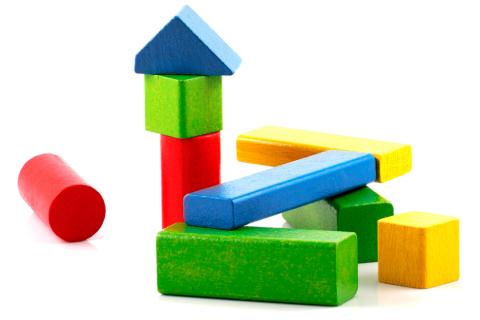
Children have been playing with toys since the Stone Age and every epoch since then has brought new ideas and possibilities for play. For more than 100,000 years, people have been making toys for their own children, who historically used to play with everything nature had to offer.
Inexpensive serial production of toys has been made possible since industrialisation and even before 1900, children wanted model railways, construction kits and wooden figures, some of which have become rare collector's items today. Thanks to modern electronics, new products are now equipped with a wide range of functions and always stimulate new interest. The manufacturers react to this and act internationally to secure a place for themselves in the large toy market.
Europe likes to play
The toy industry in Europe expects sales of more than £35 billion per year and annual growth of around two per cent is also forecast for the future. Toy manufacturers are establishing their brand names internationally and are constantly developing new products that ensure constant demand. In addition to animal figures for toy farms, which are still in demand, the toy industry today includes the following sectors, among others:
- Model making
- Card & board games
- Dolls & soft toys
- Toys for small children
- Educational toys
- Puzzle
- Throwing games
- Games consoles
The demand for electronic toys in particular is continuously increasing and as a good quarter of today's toys contain plastic, the plastics industry also benefits from increased toy production. Basic plastic materials are easy to shape, easy to care for and can be produced in all colours. However, all materials used to make toys are subject to rules and regulations.
Manufacturers are subject to fixed guidelines
The global market is also a blessing for toy manufacturers, because they can conquer new markets with their products and attract attention in as many online-shops and shop windows as possible.
Modern toys often need to be assembled by the purchasers and are complex in construction, which is difficult to do without concrete instructions. To achieve this, toys that are produced or sold within Europe must comply with certain safety requirements. The toy safety glossary contains a series of regulations and test procedures that a new product must successfully pass before it can be placed on the shelves. In addition to health aspects, safety-related tests are also carried out on the materials and there are standards regarding instructions as well.
Translations play a central role in the toy industry
Translations for the toy industry have become increasingly important in recent years, because multi-page and comprehensively formulated instructions are now an integral part of complex toys with many functions. Legal contracts between globally operating manufacturers and distributors also need a stable basis despite language barriers and different laws. Binding agreements, translated by professionals, ensure that the market can continue to grow and that new developments can be available in time for peak seasons, such as Christmas.